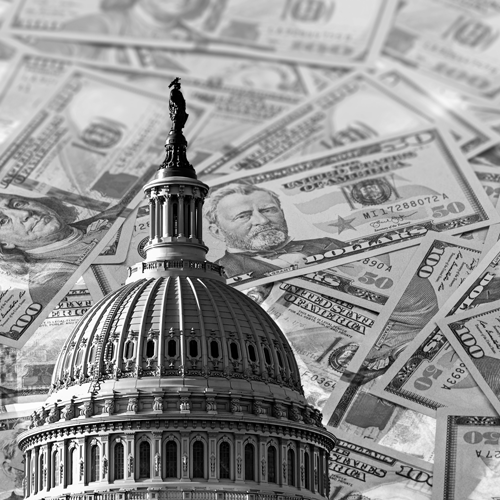Press Releases
Nearly 60% Of Incumbent U.S. Reps. Filed Extensions On Financial Disclosures Amid Push for Restricting Congressional Stock Trading

WASHINGTON, DC – A new analysis from government watchdog Accountable.US found nearly 60% of incumbent U.S. representatives filed extensions in 2023 for their 2022 financial disclosure, the majority of which––54.5%––were Republicans. Accountable.US.’ review of the House Committee on Ethics’ financial disclosure database also found that among the 257 representatives that filed extensions, 80.9% asked for the maximum 90-day extension. In addition, 17 out of 28 (60.7%) Republican House Financial Services Members filed extensions instead of timely financial disclosures.
Members of Congress were required to file their annual financial disclosure reports by May 15th, 2023 under the Ethics in Government Act and STOCK Act to help identify and regulate possible corrupt conflicts of interest or instances when an “official uses his position of influence to enhance his personal financial interests.” Their failure to do so has fueled criticism that the “toothless” STOCK Act does not go far enough, and elevated concerns about how many members of Congress were able to beat the S&P 500 in 2021 and 2022 amid “the worst market since 2008.” While at least six bipartisan House bills have been introduced this Congress to restrict stock trading, the MAGA House Majority has not acted on any of the bills even as public pressure continues to mount. A 2022 poll found over 7 in 10 likely voters believed members of Congress should not participate in the stock market while in office.
It’s a giant red flag when so many Representatives are beating out the S&P 500 despite the most tumultuous market in years, raising questions whether some are taking advantage of their privileged positions,” said Liz Zelnick, Director of government watchdog Accountable.US’ Economic Security & Corporate Power.
“The status quo has allowed many in Congress to trade in secret by kicking the can on public disclosure, which only invites corruption and conflicts of interest. The less means and opportunity Congress has to use their influence to game the stock market for personal and family gain, the less it will happen. If the MAGA House Majority is unwilling to act on popular and bipartisan efforts to prevent self-dealing on Wall Street and restore public trust in government, it would only raise more questions about what they have to hide,” Zelnick continued.
Efforts to pass stricter regulations on financial investments by members of Congress and their families follow the New York Times’ finding that over 3,700 trades reported by lawmakers from 2019 to 2021 “posed potential conflicts between their public responsibilities and private finances,” including sitting on congressional committees that “give them some degree of knowledge or influence.” In the last few years, several members of Congress have been accused of using nonpublic information when buying or selling stocks, ultimately to their benefit.
###
